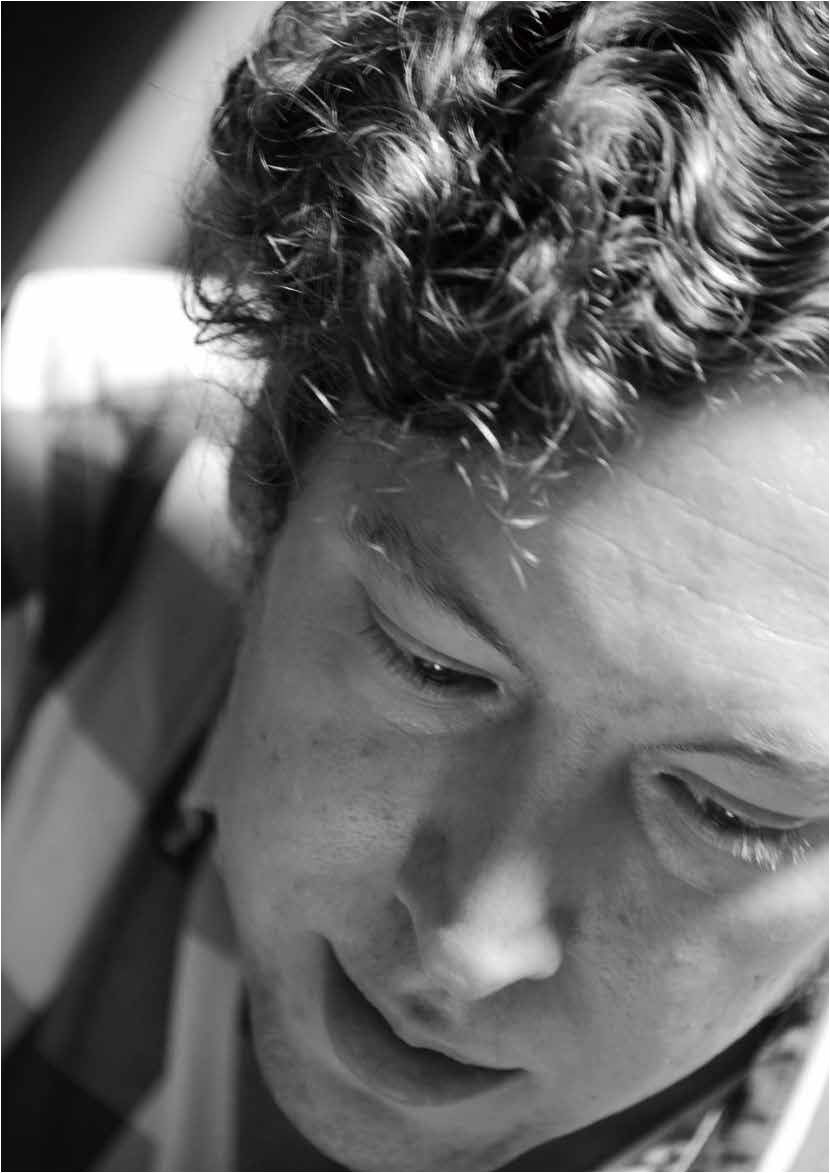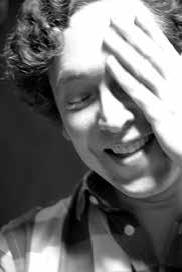Issue:

To call Said Karlsson a photographer and writer is not inaccurate, but it is entirely insufficient. Karlsson is curious in both senses, a juggler of disparate hobbies and skills with strong artistic leanings for whom independence is paramount.
He was born in Malmö, Sweden, in 1982 and raised in Norrköping, southwest of Stockholm, by a hard-working single mother. “When I wanted my first computer, my mother said, ‘I can’t afford a computer. If you want one, you have to work.’ So I managed to get a job in a video game store in my hometown. That’s how I learned how to hustle,” he says. Finding ways to monetize personal interests has been a hallmark of his modus ope-randi ever since.
“I don’t like writing. I see it as a way to be able to do everything else that I love about being a journalist”
Karlsson got into photography during his last year of high school and was shooting for the youth section of the local newspaper by the time he was 18. He moved to Stockholm the day after high school graduation and began working for Metro, the first free newspaper in Europe. Sensing how competitive the media business was becoming, he armed himself with a one-year course in reportage writing at Tollare, a vocational school outside the capital known for journalism.
Like Norrköping, Stockholm proved “too small” for Said, prompting a move to Berlin in 2007, where he exhausted his savings looking for work amid the city’s many artists. He returned to Sweden to photograph musicians before landing his first “real job” writing about tech and video games for a now-defunct agency called PM. “It was pretty free, and I could do it from anywhere as long as I delivered what they expected every day, so I came to Japan, because I’ve always felt drawn to it,” he says, citing early Japanese video games as a particular draw.

KARLSSON BOUNCED BETWEEN KOREA, China and Japan on tourist visas, eventually finding himself back in Sweden searching for ways to move to Japan long-term. He settled on Japanese language school in Tokyo in 2010, while also stringing for Sweden’s Sydsvenskan newspaper.
The day after the 3/11 disaster, he quit school and began freelancing for various Swedish news outlets and doing internet video interviews. He later stayed with a family in temporary housing in Rikuzentakata, Iwate Prefecture, on the first anniversary of the disaster. “It’s always been my thing to talk with people after other press has left,” he says, leaving the hard news to the large agencies and focusing instead on people and their experiences.
Karlsson helped the FCCJ build and run its new website in 2013, and in the winter of 2014 moved back to Sweden to finish a degree in informatics he had been chipping away at through cor-respondence at Mid Sweden University. “Basically computer science,” he says. “I spent a year in Sweden learning how to code. Actually, I have been running a small software company besides doing all this journalism. I’ve made a couple of games.” The plot thickens.
As it turns out, from his teenage years Karlsson has been an adept at, perhaps even a devotee of, the Japanese video game “Dance Dance Revolution,” a large arcade game where players advance by stepping on colored floor sensors to the timing of increasingly complex tunes. “I got really obsessed with this game, and I even imported a big arcade machine from Japan to Sweden” at no small cost, he says.
HE MET AMERICAN PROGRAMMER Matt Scott in Tokyo, and the two decided to make a similar game for the iPhone where the fingers take the place of the feet. In January of 2011, with the gift of free music from friends and no budget whatsoever, they produced Rhythm Control, which shot to the No. 1 slot for music games on Apple’s App Store in Japan. They used the profits to start a small Sweden-based firm called Daikonsoft, which Karlsson now owns entirely, and eventually produced a sequel. Rhythm Control 2 can still be enjoyed for free and passed half a million downloads last year.
Now back in Japan once again, Karlsson shoots and writes reportage pieces for TT, Scandinavia’a largest news agency, covering a variety of human-interest topics, most recently the progress of LGBT rights in Japan. “I really don’t like writing,” he says. “I see it as a way to be able to do everything else that I love about being a journalist,” such as meeting people, traveling, taking photographs and doing research. “The writing is a necessary evil.”
He draws photography inspiration from “the old classic street photographers,” Henri Cartier-Bresson, Brassaï, and the Swedish photographer Christer Strömholm. He has an eye for natural, sponta neous moments, and often uses a smaller, more discreet camera: “I shoot from the hip sometimes.” His street fashion blog tokyofaces.com, although semi-dormant, still gets regular traffic and remains a source of new clients, he says.
Karlsson’s photos have appeared in a variety of places, from Bloomberg to Pecha Kucha to the cover of a recent Swedish edition of the Haruki Murakami novel Colorless Tsukuru Tazaki and His Years of Pilgrimage, a shot taken in Shinjuku. He’s now moving toward video production out of personal interest as well as increasing demand from clients.
Speaking with Karlsson for a while, one gets the sense he may have still more hobbies, facets we’ve yet to touch on. “Actually,” he says, as our time is winding down, “I have been DJing quite a lot . . .”
Tyler Rothmar is a Tokyo-based writer and editor.

